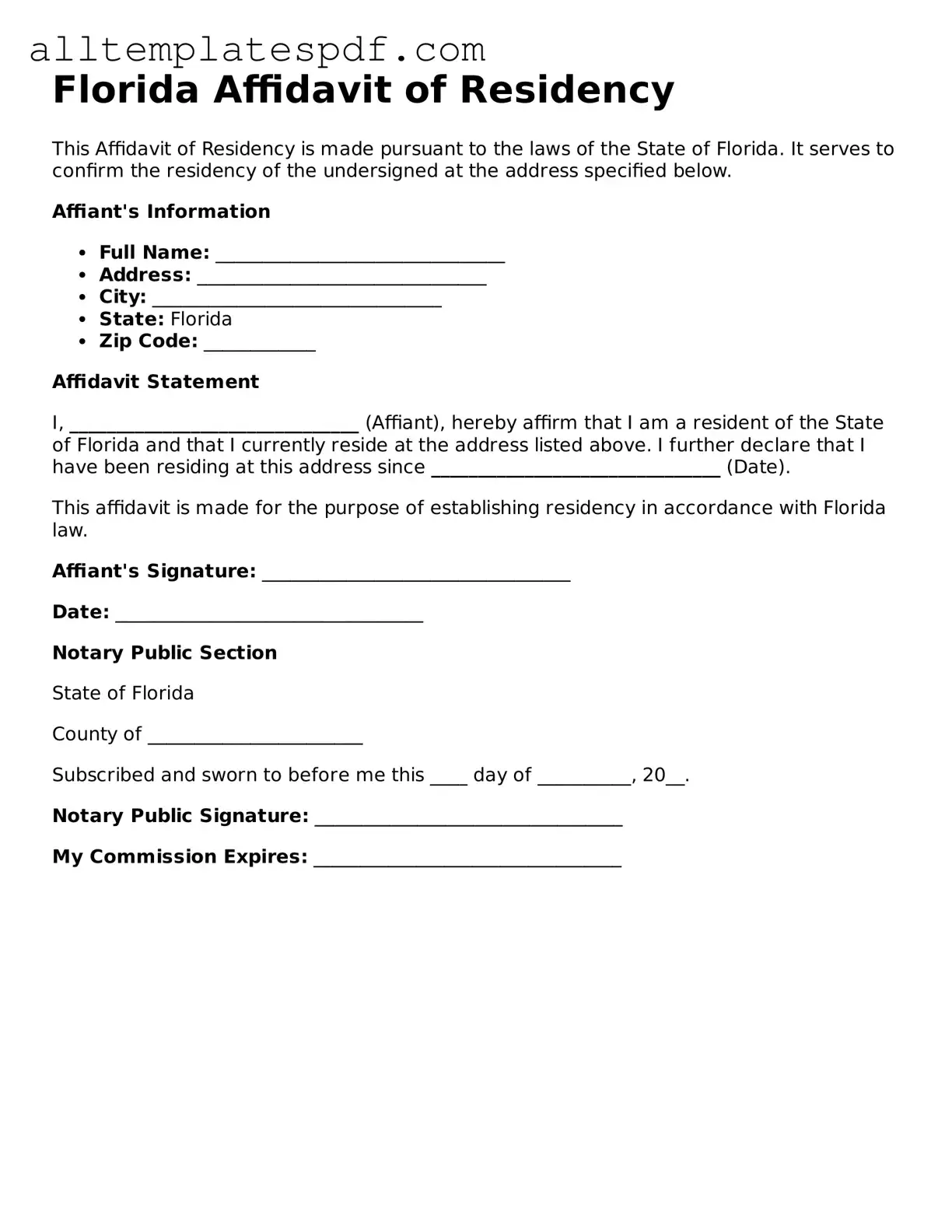Blank Affidavit of Residency Template for the State of Florida
The Florida Affidavit of Residency form is a legal document that allows individuals to officially declare their residency status in the state of Florida. This form is often required for various purposes, such as obtaining a driver's license or registering to vote. Understanding how to complete this form is essential for ensuring compliance with state regulations.
Ready to fill out the form? Click the button below to get started!
Open Editor

Blank Affidavit of Residency Template for the State of Florida
Open Editor
Fast and easy form completion
Complete Affidavit of Residency digitally — fast and easy.
Open Editor
or
↓ Affidavit of Residency PDF Form
